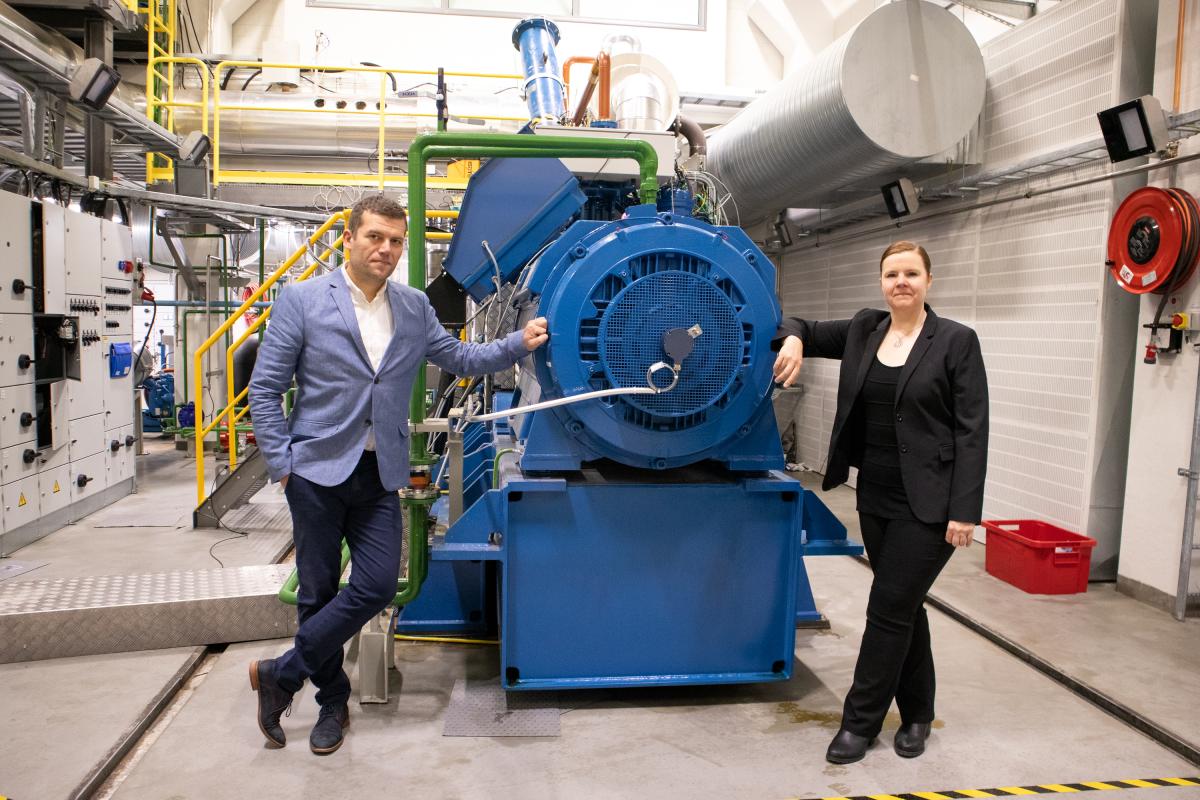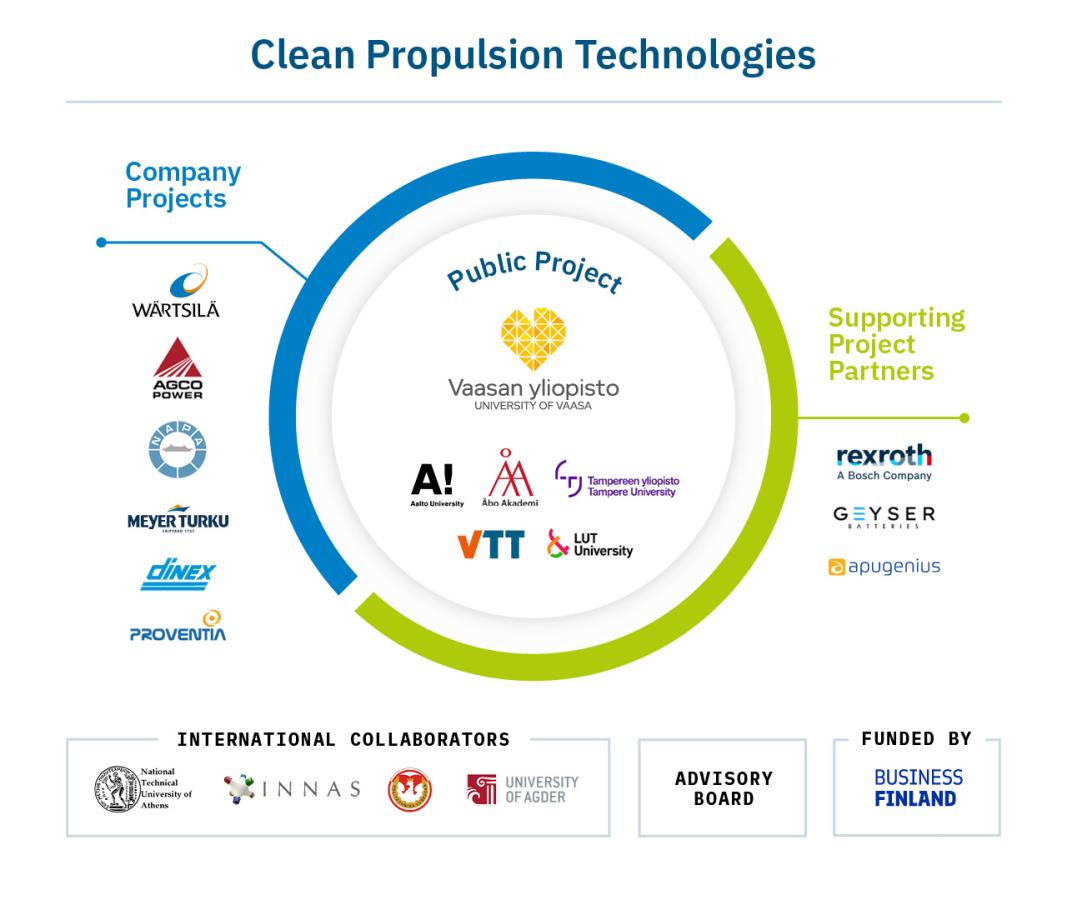Clean Propulsion Technologies

In the light of energy transition in marine and off-road segments, the goal of the Clean Propulsion Technologies (CPT) Consortium is to secure the global technology leader position for the Finnish powertrain industry by creating a common vision and sustainable business solutions. This will be accomplished by moving the most promising, innovative (TRL3) powertrain technologies to Readiness Level (TRL) 5-6. These developments will secure compliance with emission and GHG regulations in both segments until 2035. In the long term, the goal is achieved by evolving the common technological roadmap for the marine and off-road sectors providing a consolidated plan for how to secure this compliance until 2050. The objectives pertain to several impactful innovations: an H2 engine demo, ultra-efficient RCCI combustion with biogas, advanced thermal management and novel catalyst solutions. All of those developments are further grasped into the context of combined combustion-electric-hydraulic operation and supported by state-of-the-art model-based control and power management solutions.
University of Vaasa leads the Clean Propulsion Technologies consortium and the VEBIC laboratories are instrumental for the development of the project’s combustion-aftertreatment technologies. Aside to providing the >10MEu net worth, state of the art facilities with rapid prototyping capabilities, we are responsible for this project’s model-based development framework. The framework forms a major methodological upgrade on the incremental improvement approaches used in earlier projects, and secures feasibility of this project’s ambitious objectives. In the end of the project University of Vaasa will demonstrate (TRL 5) a worlds-first, large-bore RCCI (Reactivity Controlled Compression Ignition) marine engine platform meeting Stage V emission limits. We also prepare the framework towards it’s hybridization with tailored aftertreatment and electric power take-in/take-out strategies. Finally, we are responsible for business case assessment of the technologies developed in this project and for putting them in context of future market needs (technological roadmap). The consortium management activities include wide range of common dissemination underlining the project’s ground-breaking role on the international propulsion development arena.
Clean Propulsion Technologies
Project schedule: 1.2.2021-31.12.2023
Project leader: Maciej Mikulski, University of Vaasa
Operational manager: Merja Kangasjärvi, University of Vaasa
Contact persons in University of Vaasa: Maciej Mikulski, Merja Kangasjärvi, Seppo Niemi, Teemu Ovaska, Rodrigo Rabetino Sabugo, and Aino Myllykangas
Researchers in University of Vaasa: Aneesh Vadusev, Carolin Nuortila, Michaela Hissa, Emma Söderäng, Teemu Ovaska, Xiaoguo Storm, Olav Nilsson, Antti Kiikeri, Sonja Heikkilä, Kirsi Spoof-Tuomi, Bening Mayanti, Rodrigo Rabetino Sabugo, Kimmo Höglund, Kim Jeyoung, Pauli Valkjärvi, Amir-Mohammad Shamekhi, Hamir Jafari, Alireza Kakoee, Katriina Sirviö, Jaber McBreen, and Amir Soleimani.
University of Vaasa units participating in the project: Vaasa Energy Business Innovation Centre VEBIC, School of Technology and Innovations and School of Management.
Funding from: Business Finland, companies
Consortium coordinator: University of Vaasa
Research partners: Aalto University, Tampere University, Åbo Akademi University, VTT Technical Research Centre of Finland and Lappeenranta-Lahti University of Technology LUT
Collaboration partners: Wärtsilä Finland, AGCO Power, Meyer Turku, Napa, Dinex Finland, Proventia, Geyser Batteries, Bosch Rexroth and APUGenius
Total budget: Approximately 15 million euros
University of Vaasa share of the budget: 2 471 250 €
University of Vaasa share of the external funding: 1 806 242 € (plus an additional approx. 0.5 M€ project related support from involved companies).
Project website: https://cleanpropulsion.org/

